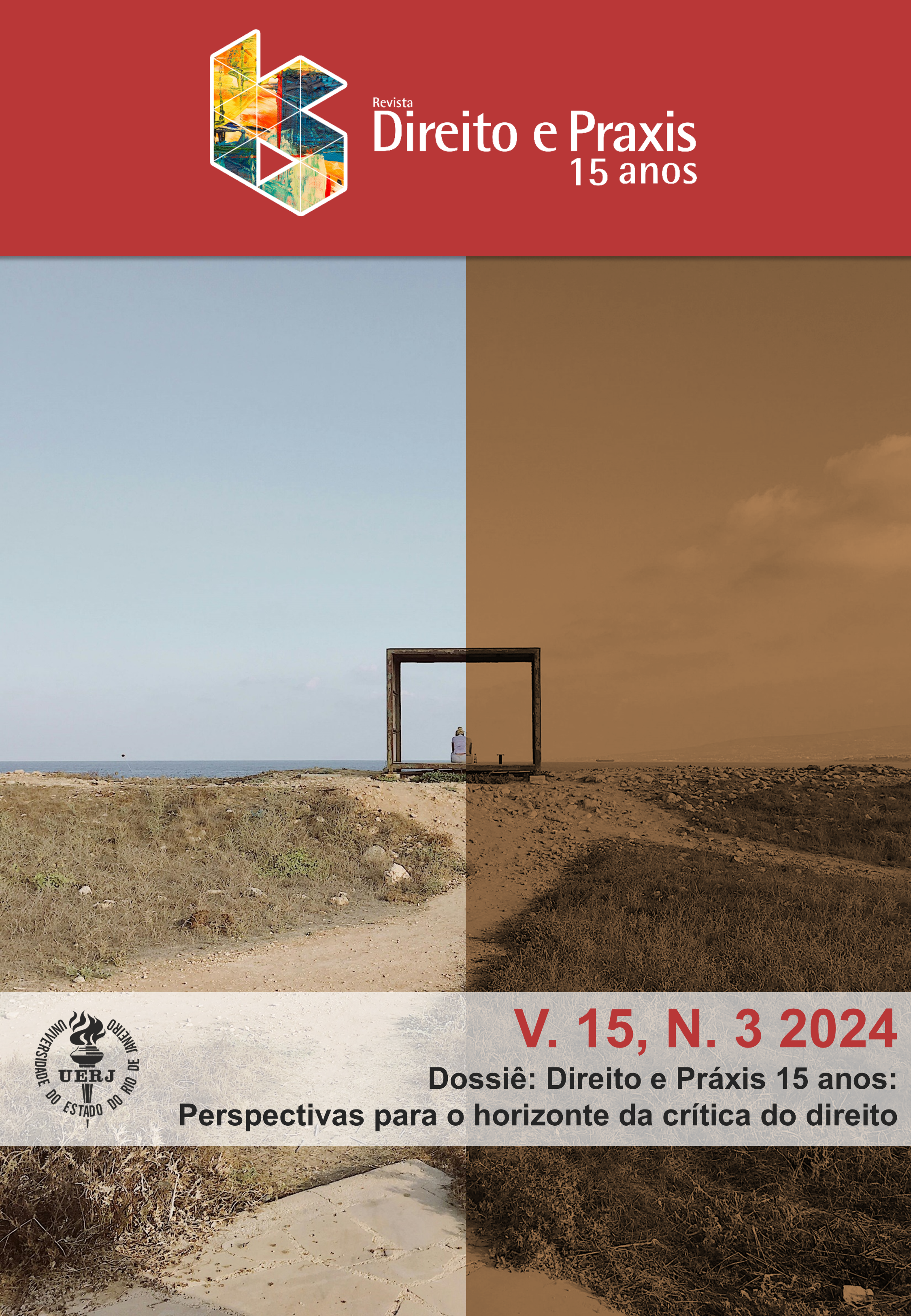O direito cosmopolítico Munduruku como prática jurídica contra o Antropoceno
Palavras-chave:
Autodemarcação Munduruku, Antropoceno, Direito cosmopolíticoResumo
https://doi.org/10.1590/2179-8966/2024/83710
Discussões críticas sobre a tese do Antropoceno apontam para a necessidade de uma reconfiguração radical da política e do direito. Propomos que possíveis caminhos para essa reconfiguração estão presentes nas práticas de defesa do território e modo de vida do povo Munduruku, especialmente no processo de autodemarcação do território Daje Kapap Eypi, no médio curso do rio Tapajós, iniciado em resposta à paralisação da demarcação da terra pelo governo brasileiro e ao avanço do licenciamento da Usina Hidrelétrica São Luiz do Tapajós. A partir de uma análise dos conflitos em torno deste território, investigamos o embate entre duas lógicas jurídicas antagônicas: de um lado, um direito do Antropoceno, que reforça a separação entre natureza e sociedade, rejeita modos existência que fogem a essa dualidade, e aprofunda o extrativismo predatório; e, de outro, um direito cosmopolítico dos Munduruku, no qual direitos e obrigações são constituídos por redes de entidades humanas e mais-que-humanas, por práticas autônomas de tomada de decisão e pela experiência situada e viva do território. Argumentamos que o direito cosmopolítico dos Munduruku tem constituído territórios capazes de frear o avanço do extrativismo e da destruição ecológica, e deve ser entendido como uma prática jurídica que sustenta e repara as condições de vida num planeta ferido.
Downloads
Downloads
Publicado
Como Citar
Edição
Seção
Licença
Copyright (c) 2024 Ana Carolina Alfinito, Salvador Schavelzon, Alessandra Korap Munduruku (Autor/a)

Este trabalho está licenciado sob uma licença Creative Commons Attribution 4.0 International License.
Os textos são de exclusiva responsabilidade de seus autores.
É permitida a reprodução total ou parcial dos artigos da Revista Direito e Práxis, desde que citada a fonte.
Este trabalho está licenciado sob uma Licença Creative Commons 4.0, Atribuição-Sem Derivações.
Esta licença permite copiar e redistribuir o material em qualquer suporte ou format para qualquer fim, mesmo que comercial, desde de que citada a autoria original.
This work is licensed under a Creative Commons Attribution 4.0 International License.




